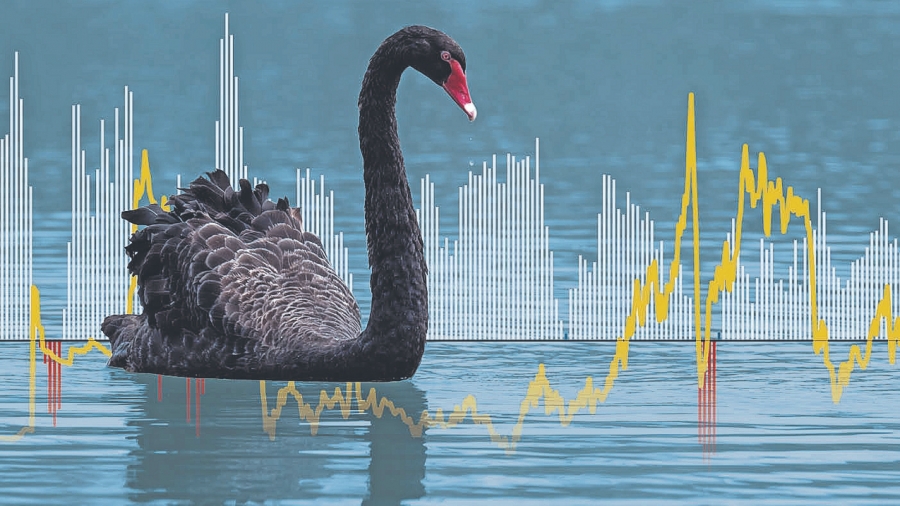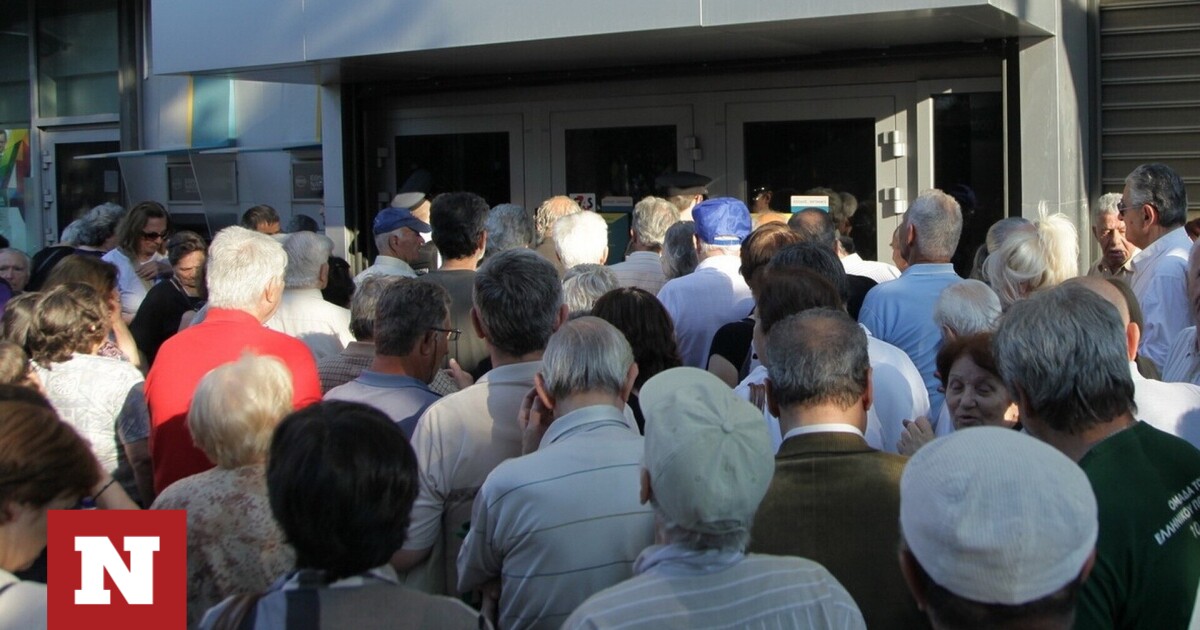
Markets are facing the phenomenon of black swan…
In the face of extreme phenomena, such as the black swan, the markets will come, causing investors to flee… But you have nowhere to hide since the party is over and the bubble has burst…
Here comes TheoTrade’s veteran Wall Street technical analyst, Jeff Berman.
As he said, worrying technical signs indicate that the upward trajectory in asset prices is about to come to an abrupt end.
Specifically, five assets (bitcoin, gold, oil, bonds, and stocks) move parallel to each other in what Berman calls “automatic chain correlation.”
In Berman’s view, this is an important bearish signal, as it indicates overbought conditions in many sectors.
Meanwhile, investors are discounting future risks, with the Fear Index/VIX hovering around 17.
Berman warned that this is the lowest price the volatility index has seen for 2023 and is a sign that traders are getting complacent.
“There is no place to hide, no differentiation in this type of market.
This is a sign of a black swan.
We are dealing with a bubble that can burst at any time due to an external event or any unstable factor.
Berman issued a warning to the investing public amid a period of corporate earnings announcements, and while the big banks beat estimates – in contrast to the broader sentiment where the majority of companies were disappointed.
It is noteworthy that the credit crisis, in the wake of the banking turmoil in March, does not help business and economic prospects.
“Be prepared for a period of volatility,” Berman said of stocks.
“There is plenty of room to fall,” he added.
A decrease from 20% to 40% in the technology sector
At the same time, it may correct the rise in shares of US technology companies by 20% to 40%.
An assistant professor of economics at Loyola University warned that US stocks are not yet out of the danger phase, despite their recovery since the beginning of 2023.
So far this year, US stocks have rallied, with the tech-heavy S&P 500 and Nasdaq 100 posting gains of 7% and 18%, respectively.
The gains were driven, in large part, by investor optimism that the Federal Reserve will end aggressive monetary tightening as inflation subsides.
“Technology is the market leader, so I foresee a trade-off between technology and laggards.
Technology, for now, has run its course.
Because of the banking change, I think the cloud will negatively affect financing.
“There are mines in other banks that haven’t been disclosed yet,” Berman said, adding:
Technology and industries can correct by 20% to 40%.
Will the entire market fall off a cliff?
no “.
Berman stressed that retail stocks and oil will recover because their valuations are “compelling”.
“We are not yet dealing with the investor market.
We have a market for investors when interest rates are low, inflation is under control, sales are up, and employment is up.
“We don’t have any of that,” Berman continued.
Low prices for long periods
Prepare for a prolonged decline in US housing prices, 52% are sinking into the S&P 500 And more banking problems, warned GMO founder Jeremy Grantham.
He added that homes in the United States are very expensive compared to family income, and rising mortgage costs have eroded people’s purchasing power.
Grantham predicted that as people gradually realize that their real estate is worth much less than they thought, they are more likely to feel impoverished and cut back on travel abroad, graduate school, and other expenses.
He noted that spending cuts could dampen economic growth.
“It won’t happen overnight, but the housing market is overshadowing the stock market as well,” Grantham said.
The bad news is that the whole situation is moving very slowly.
The last time was the peak in 2006 and the big drop in 2012 – it took six years.”
“I don’t expect a collapse, but I do expect housing prices to become more affordable,” he added.
The veteran investor sounded the alarm about a “big bubble” covering stocks, bonds and real estate in January 2022.
Against that backdrop, he said, “the best we can hope for is for this market to drop to around 3,000.”
“Our worst fear is over 2000.”
Knowing that this may sound extreme, Grantham noted that the benchmark was 666 points in 2009, meaning that if it drops to 2,000 points this time, it will be three times the levels seen 14 years ago.
Bridgewater’s Dalio warns: the banking system will need a “major restructuring” soon
Ray Dalio, founder of Bridgewater Associates, gives a clear warning to the banking system – which is now on a path of change – stressing that debt levels have reached unsustainably high levels.
The founder of Bridgewater Associates noted that the debt will increase so much that central banks will have to buy it.
“Given these circumstances, it appears that interest rates are high enough (and money and credit are tight enough) to fight inflation and provide banks with enough real returns that would be unbearably high for indebted borrowers,” Dalio said, adding, “This means that the system is close to the point. For which major restructuring will be required. Of course, any of the debtors and creditors will be affected.
Dalio also reiterated the “Great Cycle” framework which states that the same economic patterns repeat themselves throughout history, i.e. the creation of huge debts, conflict within countries, conflict between countries, the influence of nature and technological changes such as the Internet or artificial intelligence. .
Each of the five forces – according to Dalio – is now converging to magnitudes not seen in decades.
Meanwhile, within the larger cycle, there is a smaller, short-run cycle, defined by economic weakness, in which central banks create high inflation and eventually stagnation.
In his view — after nine consecutive rate hikes by the Fed, record inflation, and an ongoing debt and credit crisis — this is where things now stand: “We are now in the tight monetary anti-inflationary phase of this cycle, just before the downturn. It will likely make the next year or two difficult for the economy.”
Even a student
Meanwhile, more recently, even the author-discoverer of the black swan as an economic phenomenon called upon by Nassim Nicholas Taleb himself, investors to prepare for a “painful return to reality” using a smooth metaphor: in short he said that the “playground” (in this case Disneyland) is over and “The children will go back to school.”
“It will not be as easy as the last fifteen years.”
“The generation that grew up with near-zero interest rates unleashed an asset bubble and a massive series of hyper-inequalities,” the famous author said Monday at an event in Miami organized by hedge fund Universe Investments.
He added that investors are not accustomed to a world where interest rates are rising as the US Federal Reserve raises interest rates to high levels to curb and curb inflation.
In this regard, it is worth noting that black swan theory It was coined by Nassim Nicholas Taleb and refers to surprises and unpleasant events that cannot be predicted based on our past experience.
It is based on a true story that happened many years ago and caused huge problems in the birding community.
For many years ornithologists believed that swans had only white feathers, until one day…a black swan was seen in Australia.
In economic ‘vocabulary’, ‘black swan’ refers to an unexpected event, which is not likely to happen very often, but if it does happen eventually, it will greatly affect developments.
www.bankingnews.gr

“Avid problem solver. Extreme social media junkie. Beer buff. Coffee guru. Internet geek. Travel ninja.”





More Stories
Retrospective for retirees: Who is affected, who wins and who loses – Newsbomb – News
With…Rural Sakis Rouvas
The data-altering 'treasure' is coming – where is it?